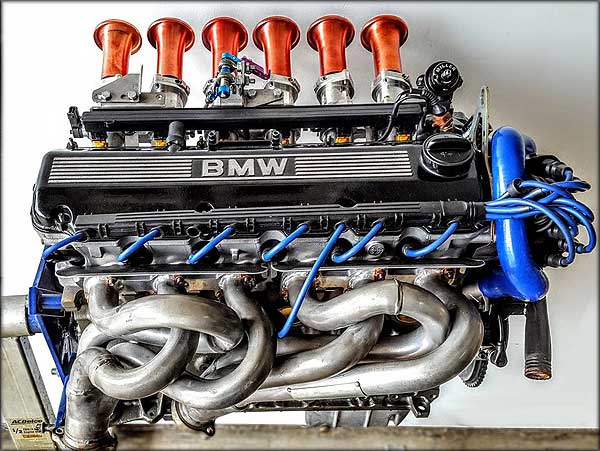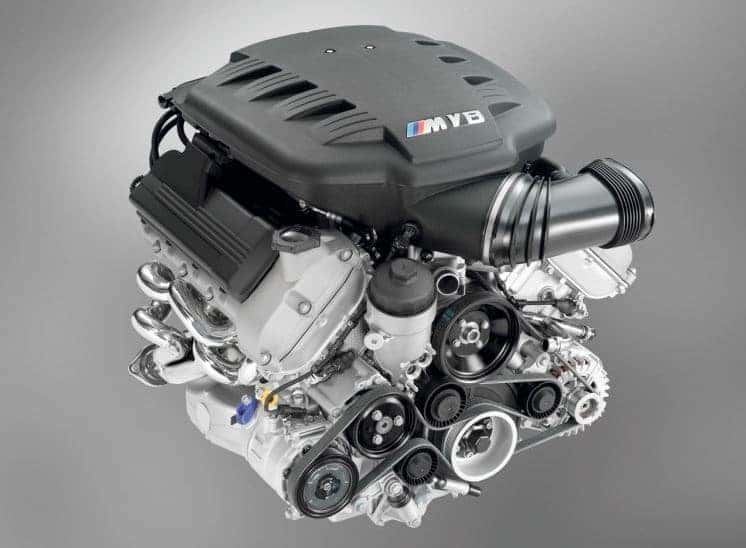How to Maintain Your BMW Engine for Ideal Performance and Durability
How to Maintain Your BMW Engine for Ideal Performance and Durability
Blog Article
Revealing the Intricacies of Next-Generation Power Units: a Deep Dive Into Advanced Engine Styles and Advancements
As we stand on the precipice of a brand-new age in transportation, the intricacies of next-generation engine layouts beckon us to explore the sophisticated innovations and advancements that guarantee to redefine the driving experience. Delving much deeper into the realms of emission control, intelligent engine management systems, and the perspective of power device development, we find ourselves on the cusp of a makeover that promises to improve the landscape of mobility as we understand it.
Advancement of Engine Materials

The shift in the direction of progressed engine materials has likewise allowed designers to make engines with higher power outputs while preserving gas performance standards. The usage of light-weight materials reduces the overall weight of the engine, leading to enhanced fuel economic climate and reduced exhausts. In addition, advancements in products technology have actually permitted far better thermal monitoring within engines, leading to increased dependability and longevity.
Turbocharging and Supercharging Technologies
Exactly How do Turbocharging and Supercharging Technologies transform engine efficiency and efficiency in contemporary automobiles? Turbocharging and turbo charging are modern technologies that dramatically enhance engine performance by raising the quantity of air intake into the burning chamber. Turbocharging accomplishes this by utilizing a generator driven by exhaust gases to pressurize the intake air, while supercharging utilizes a belt- or chain-driven compressor to achieve the very same effect.
These modern technologies make it possible for smaller, extra fuel-efficient engines to produce power equal to larger ones, called downsizing. Forcibly even more air right into the cylinders, turbo charging and turbocharging improve combustion efficiency, leading to raised horsepower and torque result without a considerable rise in engine size. This causes better velocity, lugging capability, and total driving performance.
In addition, turbocharging and supercharging contribute to boosted fuel performance by allowing the usage of smaller engines that eat much less gas under normal driving problems - bmw engine. This mix of enhanced performance and effectiveness has actually made turbocharging and supercharging important parts of many modern engine styles
Exhaust Control and Environmental Influence
With increasing worldwide worries regarding air high quality and ecological sustainability, the execution of exhaust control technologies in cars plays an essential function in minimizing unsafe pollutants released into the Find Out More atmosphere. Modern cars are furnished with advanced discharge control systems that aid minimize the environmental impact of automotive operations. Catalytic converters, for example, are designed to transform toxic gases such as carbon monoxide gas, nitrogen oxides, and hydrocarbons into less hazardous substances like carbon dioxide and water vapor.
Additionally, improvements in engine innovation, such as the combination of exhaust gas recirculation systems and discerning catalytic decrease, have actually substantially added to reducing discharges. These technologies operate in tandem to maximize burning effectiveness and reduce the release of harmful toxins right into the air. Furthermore, the advancement of hybrid and electric vehicles stands for a crucial action in the direction of decreasing the overall ecological footprint of the transport field.
Intelligent Engine Monitoring Solution

Additionally, these systems make it possible for automobiles to meet rigid emissions criteria without jeopardizing performance, giving Continue a much more eco-friendly driving experience. The integration of expert system and artificial intelligence abilities in engine management systems remains to push the borders of what is feasible, bring about more enhancements in performance, reliability, and general vehicle performance. bmw engine. As vehicle technology developments, smart read what he said engine management systems will certainly play an essential function in forming the future of transportation towards an extra lasting and efficient instructions
Future Trends in Power Unit Development
As intelligent engine monitoring systems lead the means for enhanced control and optimization in modern cars, future fads in power device advancement are poised to redefine the landscape of vehicle propulsion innovations. These alternative power sources use boosted performance and performance while straightening with rigid ecological policies.
One more significant fad is the integration of innovative products and manufacturing methods. Lightweight products such as carbon fiber and aluminum are being made use of to decrease general vehicle weight, enhancing fuel performance and performance. Furthermore, advancements in 3D printing and additive manufacturing are making it possible for the manufacturing of complex engine parts with higher precision and sturdiness.
Furthermore, fabricated intelligence and device knowing are playing an essential function in enhancing power system performance. These innovations permit real-time monitoring and adaptive control, causing extra reliable and reliable power distribution. Overall, future patterns in power device development are tailored in the direction of sustainability, performance, and efficiency, driving the vehicle sector in the direction of a new period of propulsion innovations.

Final Thought
In conclusion, the developments in engine materials, turbocharging, exhaust control, and smart administration systems have actually led the way for next-generation power units. The detailed designs and technologies in contemporary engines display the ongoing development of vehicle technology.
Exploring the dynamic developments in engine materials has actually been essential in enhancing the efficiency and efficiency of modern engines. Over the years, the advancement of engine products has actually played an essential role in pressing the limits of what engines can achieve.The change towards advanced engine materials has likewise allowed engineers to develop engines with greater power outputs while keeping fuel effectiveness criteria.The execution of intelligent engine administration systems in modern-day cars has reinvented the way engines are controlled and enhanced for performance and efficiency. By collecting information in real-time and analyzing it with sophisticated formulas, intelligent engine monitoring systems can adapt to driving designs, ecological elements, and engine health and wellness to optimize power output while minimizing gas intake and emissions.
Report this page